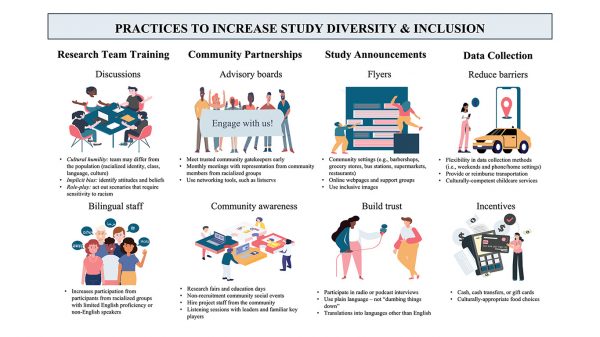Research can help find the optimal pathway to limit the negative impacts of pain.
Research & Researchers
Pain is often a complex problem in that everyone experiences it differently. In western medicine, we have very little pragmatic, clinical research on options for managing it effectively, nonpharmacological or otherwise. Additionally, the opioid epidemic has shown that pharmacological approaches may have only minimal benefit for the management of pain and the risk of substantial harms.

Pragmatic Clinical Trials
Research in Real-World Settings

Work Groups
Data Expertise & Best Practices

Forging Strong Partnerships with Patient Advisors Enhances the Impact of Pain Research
Engaging people with lived experiences of pain enhances pain care research by identifying research questions most important and relevant to those experiencing chronic pain.

The Role of Health Informatics in Pain Management
Health informatics brings information to the fingertips of clinician-researchers and practicing clinicians to help with evidence-based care recommendations and improve patient outcomes.

Guidance for Study Design and Proposals
A selection of publications, tools, presentations, and recommendations for developing strong proposals and adaptive studies, study implementation, and disseminating information.
From Our Work Groups
Intraclass Correlation Coefficients for Cluster Randomized Trials with Pain Outcomes
In this working document, the Pain Management Collaboratory Biostatistics/Design Workgroup offers an overview of the intraclass correlation coefficient (ICC) and recommendations for researchers planning cluster randomized trials with pain outcomes.
Prevention of Missing Data in Pragmatic Clinical Trials of Nonpharmacologic Interventions for Pain Management
PMC’s Biostatistics/Design Work Group addresses the problem of missing data in pragmatic clinical trials, and offers a survey of methods that some of PMC’s trials are incorporating to prevent missing data.
Featured Publications

Targeting Chronic Pain in Primary Care Settings Using Behavioral Health Consultants: A Pilot Study Implementing Brief Cognitive Behavioral Therapy for Chronic Pain
Integrating BCBT-CP into a Military Health System primary care clinic through Behavioral Health Consultants (BHCs) is both feasible and associated with meaningful short-term pain improvement.

Non-Pharmacologic Pain Management for Osteoarthritis: Review (Feb 2025)
This supplement shares new knowledge from the Pain Management Collaboratory.

Pain Management Collaboratory: Updates, Lessons Learned, and Future Directions
This supplement shares new knowledge from the Pain Management Collaboratory.

Impact of the COVID-19 Pandemic on Non-Pharmacological Pain Management Trials in Military and Veteran Healthcare Settings
PMC Coordinating Center extends its appreciation to the authors for the impactful research into the the effects of the COVID-19 on non-pharmacological pain management trials in military and veteran healthcare settings. Research done by Amanda Midboe, et al, informs multiple areas of implications.

Cognitive Behavioral Therapy for Veterans With Comorbid Posttraumatic Headache and Posttraumatic Stress Disorder Symptoms
This manuscript described the primary outcomes from a CBT-based intervention designed to address headache attributable to mild TBI and comorbid PTSD in Veterans. We found that the CBT headache intervention produced headache outcomes that were superior to medical management in VA polytrauma and PTSD outcomes comparable to Cognitive Processing Therapy.

Confronting Racism in All Forms of Pain Research: A Shared Commitment for Engagement, Diversity, and Dissemination
The third paper in the three-part series on addressing racism in pain research, the authors advocate for a shared commitment toward an antiracism framework in pain research. They identify community partnerships, diversification of research environments, and changes to dissemination practices.
